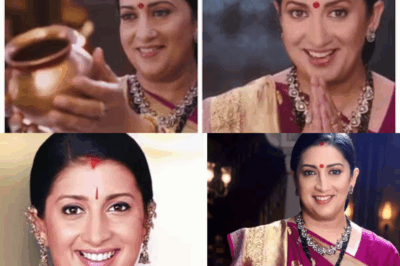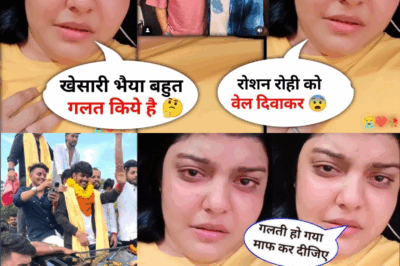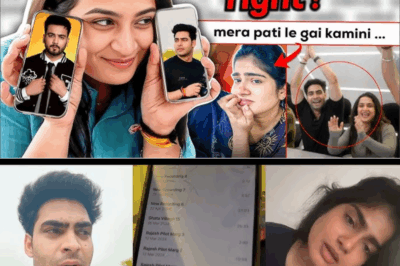A Daughter’s Love, A Family’s Shame: The Chilling Baghpat Honor Killing That Shook India
A Night of Shadows and Secrets
It was a night like any other in the sleepy village of Lohari, nestled on the banks of the Yamuna in Uttar Pradesh’s Baghpat district. The clock neared midnight, and silence blanketed the hamlet, broken only by the occasional bark of stray dogs. But beneath this calm, a storm was brewing—a storm that would not only claim a young life but also shatter the very fabric of a family, leaving a community stunned and a nation questioning the price of honor.
On that fateful Tuesday night, three shadowy figures hurried through the deserted lanes, their footsteps hurried, their faces etched with fear and resolve. Draped over the shoulder of one, limp and lifeless, was the body of a young woman. Their destination: the banks of the Yamuna. Their mission: to erase every trace of her existence.

A Forbidden Love
The story, as it would later unfold, began six years earlier. Shivani Kashyap, a bright and spirited girl from a conservative family, had fallen in love with Ankit Prajapati, a boy from the same village but a different caste. In rural India, such love is often a crime, a transgression that invites not just scorn but, too often, violence.
Shivani was barely sixteen when she met Ankit. He was a laborer, forced to work from a young age to support his struggling family. She was a student, the pride of her parents, Babita and Sanju. Despite the odds, love blossomed in the shadows—secret meetings on the way to school, whispered conversations on borrowed phones, stolen moments that became the center of their world.
But love, in this land of rigid hierarchies, is rarely a private affair. Whispers spread. Eyes watched. And soon, Shivani’s family learned of her relationship. What followed was a familiar script—pleas, threats, beatings, and the ever-present warning: end this affair or face the consequences.
Honor, Shame, and the Price of Defiance
For Shivani’s parents, the idea of their daughter marrying outside their caste was an unbearable disgrace. The Kashyaps, they believed, could not allow a Prajapati boy—regarded as lower in the village’s social order—to become their son-in-law. The family’s honor, their standing in the community, was at stake.
Despite their efforts—emotional blackmail, physical abuse, threats of disownment—Shivani refused to bend. She declared, again and again, that she would marry only Ankit, that she was an adult and no one could force her otherwise. Her defiance was met with growing fury and desperation.
As the months passed, the tension in the Kashyap home reached a breaking point. Shivani’s brother, Ravi, joined his parents in their efforts to “save” the family’s reputation. But nothing worked. The girl’s love, and her stubborn will, were stronger than their threats.
Murder Most Foul
On that dreadful Tuesday night, the family’s patience snapped. According to police reports and the family’s own chilling confession, Babita, Sanju, and Ravi hatched a plan to end the “shame” once and for all. They waited until Shivani had eaten dinner and retired to her room. Then, in a moment that would forever stain their souls, they attacked.
Shivani was beaten mercilessly. She pleaded, she screamed, but there was no mercy. In the end, they strangled her with their bare hands—the same hands that had once cradled her as a baby, that had fed her, cared for her, loved her.
But the horror did not end there. The family, now gripped by fear and cold calculation, knew they had to destroy the evidence. They wrapped Shivani’s body, carried her through the darkened village, and walked three kilometers to the riverbank. There, they built a pyre, set her alight, and watched as the flames consumed their daughter. When only ashes remained, they scattered them in the Yamuna, hoping the river would wash away their crime.
Returning home, they sat in silence—faces pale, eyes haunted. It was not the silence of mourning, but of terror. They had crossed a line from which there was no return.
A Lover’s Despair, A Community’s Shock
All through the night, Ankit tried to reach Shivani. His calls went unanswered. His messages remained unread. As dawn broke, panic set in. He circled her house, searching for any sign of her, but found only her family, grim-faced and unapproachable.
Fearing the worst, Ankit did what few in his position would dare—he went to the police. His voice trembling, he told the officers of his love, his fears, and his belief that Shivani’s family had killed her.
The police acted quickly. Within hours, Babita, Sanju, and Ravi were arrested. Under questioning, the truth spilled out—a tale so monstrous it left even hardened officers shaken. The family admitted to the murder, their motive as old as time: caste, honor, and the fear of social ostracism.
Evidence in Ashes
At the riverbank, police found what little remained of Shivani—a few charred scraps of clothing, a half-burned ID card, the telltale remnants of a hurried cremation. The evidence was scant, but the confessions were damning.
The investigation revealed a grim determination to leave no trace. The family had planned every detail, from the murder to the disposal of the body. They believed that without a corpse, there could be no crime. But they underestimated the power of love—and the reach of the law.

The Unraveling: A Family Destroyed
As news of the murder spread, the village was plunged into shock and disbelief. Neighbors spoke of the Kashyaps as a quiet, respectable family. No one could believe they were capable of such brutality.
But beneath the surface, there was anger too—anger at a society that still values honor over life, that teaches parents to fear disgrace more than death. Shivani’s murder was not just a family tragedy; it was a mirror held up to a country still shackled by caste and tradition.
The police, for their part, moved swiftly. All three family members were charged with murder, destruction of evidence, and conspiracy. Even Shivani’s aunt, implicated in the cover-up, was arrested. The case, authorities promised, would be prosecuted to the fullest extent of the law.
A Nation’s Shame
The Baghpat murder case is not an isolated incident. Every year, hundreds of young men and women in India are killed for daring to love across caste or religious lines. These so-called “honor killings” are a stain on the nation’s conscience, a grim reminder that, for all its progress, India is still haunted by the ghosts of its past.
What makes Shivani’s case especially horrifying is the cold-blooded calculation, the willingness of parents to destroy their own child for the sake of reputation. It is a crime that defies understanding, that leaves a scar not just on one family, but on an entire society.
The Aftermath: Grief, Guilt, and Unanswered Questions
In the days that followed, the Kashyap household became a place of mourning and fear. The neighbors, once friendly, now kept their distance. Ankit, heartbroken and shattered, became a symbol of all that is wrong with a world that punishes love and rewards hate.
Shivani’s story spread far beyond Baghpat, sparking outrage on social media and calls for justice from activists and politicians alike. Candlelight vigils were held, protests organized, and once again, the nation asked: how many more must die before we change?
A Call for Change
The police chief’s words, broadcast across television screens, were a stark reminder of the challenges ahead:
“Human beings are not born with caste or religion. When a life is at stake, blood knows no caste. Yet, when it comes to marriage, to love, we still allow these divisions to dictate life and death.”
Activists demanded tougher laws, better protection for couples at risk, and a nationwide campaign to end the scourge of honor killings. But for Shivani, and for too many like her, these promises come too late.
The Human Cost
Behind every headline, every viral hashtag, there is a story—a story of love, hope, and ultimately, betrayal. Shivani was more than a victim; she was a daughter, a sister, a friend, and a young woman who dared to dream of a life beyond the boundaries set by birth.
Her murder is a tragedy, but it is also a warning. Until we confront the prejudices that allow such crimes to happen, until we teach our children that love is not a crime, the rivers of India will continue to carry the ashes of the innocent.
The Price of Honor
As the Kashyap family awaits trial, the village of Lohari tries to return to normal. But nothing will ever be the same. The silence that once fell at midnight is now filled with whispers of regret, of guilt, and of a love that could not survive the weight of tradition.
Shivani’s story is a call to action—a plea for compassion, for courage, and for a future where no parent must choose between honor and humanity.
In the end, the only honor worth preserving is the courage to love, and the only shame is in failing to protect those we claim to love most.
News
Salman Khan’s Playful Reaction: When Vicky Kaushal Casually Proposed to Katrina Kaif
Salman Khan’s Playful Reaction: When Vicky Kaushal Casually Proposed to Katrina Kaif Bollywood has always been a treasure trove of…
Krushna Abhishek Opens Up About ‘Accidental’ Marriage, Family Ties, and Govinda Rift on The Kapil Sharma Show
Krushna Abhishek Opens Up About ‘Accidental’ Marriage, Family Ties, and Govinda Rift on The Kapil Sharma Show Renowned comedian and…
Smriti Irani’s Return as Tulsi in “Kyunki Saas Bhi Kabhi Bahu Thi 2” Sends Social Media Into a Frenzy
Smriti Irani’s Return as Tulsi in “Kyunki Saas Bhi Kabhi Bahu Thi 2” Sends Social Media Into a Frenzy After…
Nora Fatehi Spotted in Tears at Airport; Bodyguard Labels Fan ‘Chhapri’ in Viral Incident
Nora Fatehi Spotted in Tears at Airport; Bodyguard Labels Fan ‘Chhapri’ in Viral Incident Bollywood sensation Nora Fatehi, known for…
What Did Kiran Singh Say to Khesari Lal Yadav About Roshan Rohi’s Bail? Bhojpuri Industry Faces Backlash
What Did Kiran Singh Say to Khesari Lal Yadav About Roshan Rohi’s Bail? Bhojpuri Industry Faces Backlash The Bhojpuri entertainment…
Kataria Shares Honest Take on Ajju0008 and Pratibha’s Divorce Drama: Calls for Privacy and Maturity
Kataria Shares Honest Take on Ajju0008 and Pratibha’s Divorce Drama: Calls for Privacy and Maturity The Indian influencer and gaming…
End of content
No more pages to load












